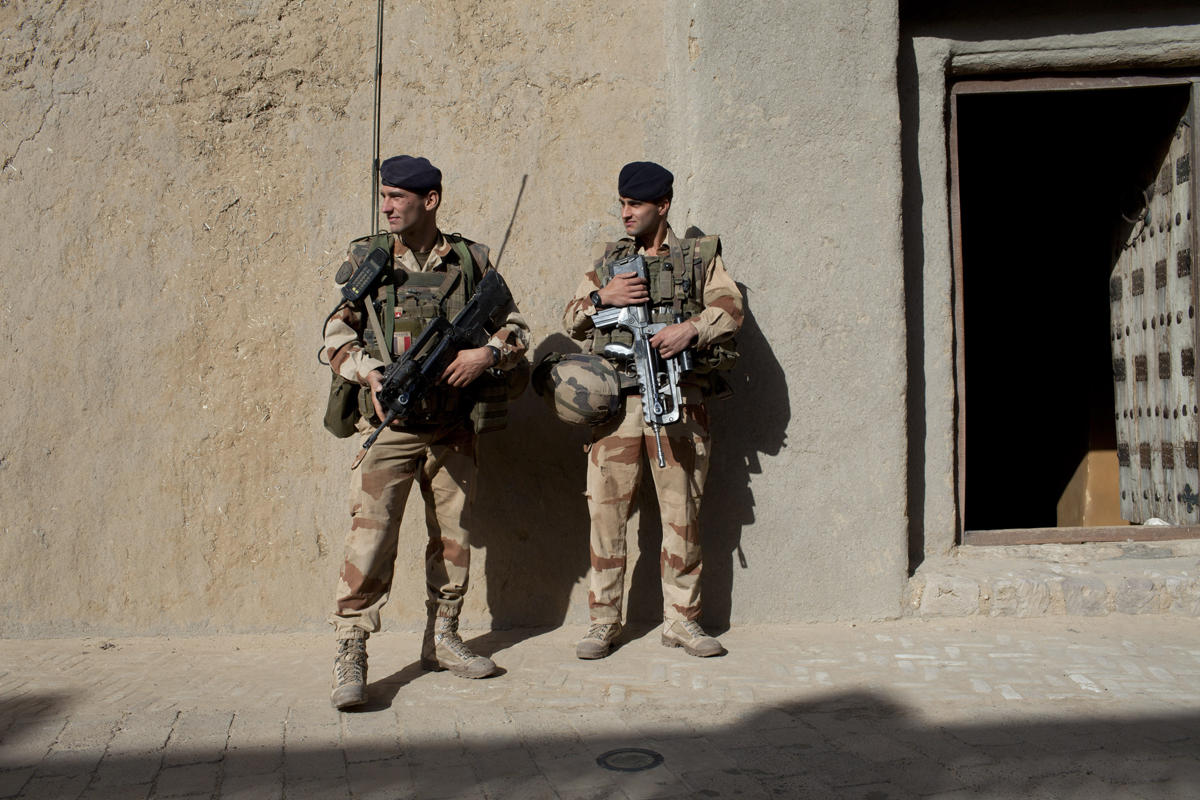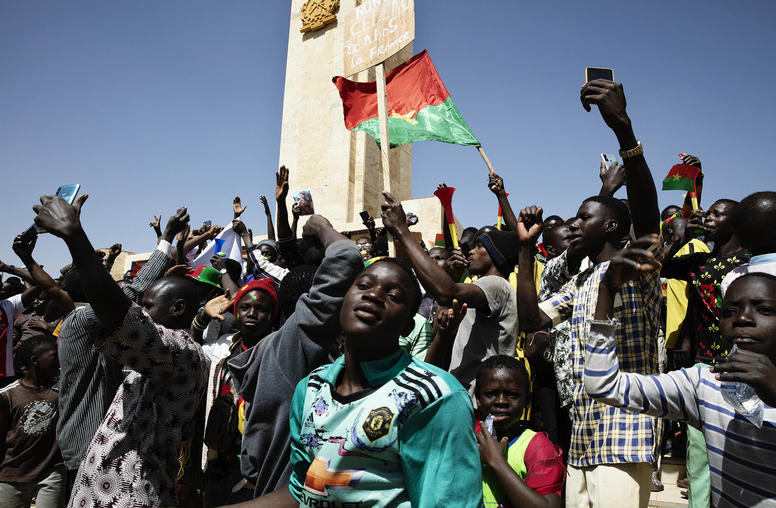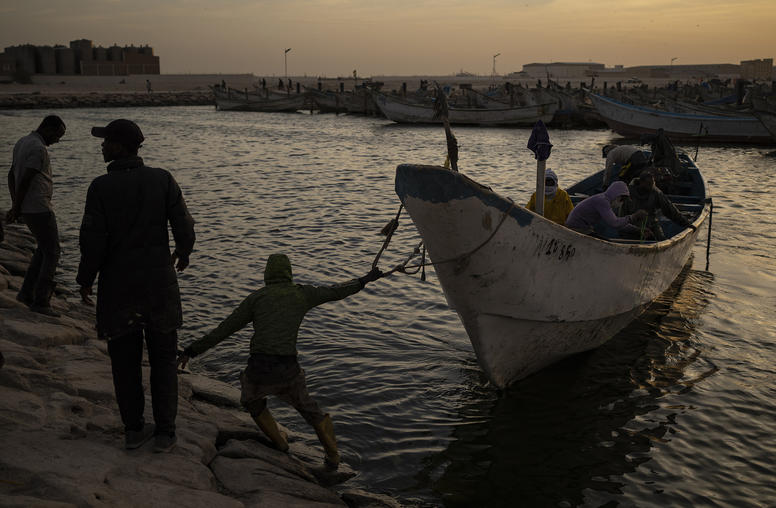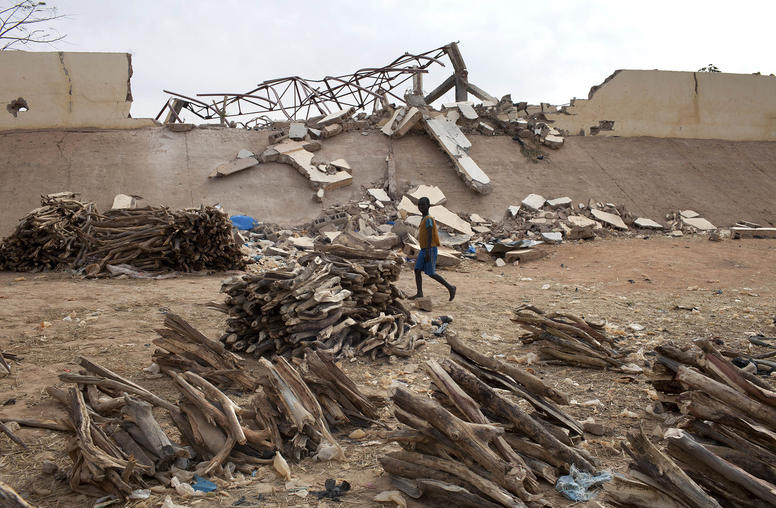Copenhagen Process Tackles Delicate Topic of Detainees in Military Operations
Allegations of detainee mistreatment are not new and remain one of the most controversial aspects of contemporary military operations. The debate has led a number of states to embrace the 'Copenhagen Process: Principles and Guidelines' concerning the taking and handling of detainees.

During the ongoing conflict in Mali, French troops, pro-government forces and rebels have all taken prisoners, according to news reports. In some cases, those who have been detained by pro-government forces or by rebels reportedly have been mistreated or even executed. There is little published information available concerning what the French have done with their detainees. Has France handed them to the appropriate Mali authorities, and if so, under what conditions?
Allegations of mistreatment are not new and remain one of the most controversial aspects of contemporary military operations. The debate has led a number of states to embrace the Copenhagen Process: Principles and Guidelines concerning the taking and handling of detainees. The states hope the voluntary guidelines will both provide better protection for detainees and permit military forces to carry out their operations effectively and efficiently.
After five years of multilateral and bilateral meetings and negotiations with states, international organizations and civil society, 17 countries (including China, France, the United Kingdom, and the United States) ‘welcomed’ the outcome document in October 2012. While not legally binding, that diplomatic step means they saw the guidelines as a useful outline for a global approach to detention that can be used by all forces.
While primarily focused on states, it also could apply to detention operations by international organizations such as the United Nations and the African Union and to non-state actors such as rebel groups. The guidance is intended for non-international armed conflicts (i.e., those conflicts that occur within the territory of a state) and for peace operations (i.e., those established by the United Nations Security Council to further the U.N.’s interest in maintaining international peace and security). That takes in nearly all of the world’s current armed conflicts.
Regardless of whether detainees are taken by states or non-state actors, the Principles and Guidelines provide a framework to avoid the sort of abuse that arises in modern armed conflict, and particularly in situations where forces have limited resources. The provisions address matters such as the meaning of detention, the release of detainees, the treatment of detainees, reviewing ongoing detention, and the transfer of detainees. The guidance also reinforces the need to implement appropriate procedures for the humane treatment of detainees. The fact that the U.S. already had in place many of the policies called for in the Copenhagen Process illustrates the difficulty of completely eliminating the risk of isolated cases of abuse such as the mistreatment that occurred at the Abu Ghraib prison in Iraq under the control of the U.S. military.
In situations such as the Mali conflict, the Copenhagen document could provide a basis for states such as France, in the case of Mali, to engage with the host government and pro-government militias in developing better standards for ensuring that detainees are not mistreated.
The Principles and Guidelines help define detention and establish standards to ensure that all persons deprived of their liberty are treated humanely. Regardless of whether a person is stopped at a road block for a few minutes or whether they are held in ongoing detention, the force holding them is required to treat the detainee with dignity and without discrimination.
All forms of torture and cruel, inhuman or degrading treatment are prohibited in the guidance. In situations where the authority holding a prisoner determines that detention is no longer justified, the Principles and Guidelines require that the detainee be released, a measure that ensures prisoners are not held in custody indefinitely without due cause.
The Copenhagen document accepts that detainees may be taken for security or criminal reasons. This is a particularly important development because traditional areas of international law didn’t recognize that type of situation in peacekeeping. Failing to make that distinction adversely prejudiced the due process rights of criminal detainees, and security detainees had even fewer rights.
In situations where military forces, particularly foreign forces, find that they must transfer a detainee to local authorities, the guidance provides a useful framework. Any transfer must be conducted in accordance with the state’s existing international obligations. Once a transfer has occurred, there is an expectation that the officials who have control over the detainee will permit external authorities to monitor the treatment of the prisoner.
The Copenhagen guidelines establish expectations that continued detention will prompt a review of whether holding the detainee is necessary or appropriate. The review provision is particularly important in situations where the transferring state might have concerns that detainees may languish indefinitely in prisons once they have been moved.
States may insist that they will not transfer a detainee if they are not satisfied that the review process meets the basic conditions outlined in the Copenhagen Process. For example, coalition states handing over non-criminal detainees to Afghan authorities could argue that they will not transfer detainees until they are satisfied that the subjects will receive the called-for security review. The U.S. government’s endorsement of the Copenhagen Process might be one reason why the American-led coalition has been unable to hand off detainees to the Afghan government.
The Principles and Guidelines also address concerns arising from the handling of detainees in places like Mali by providing guidance on matters concerning non-criminal detention for combating violent non-state actors. In that sense, they address the concerns of authors such as Daveed Gartenstein-Ross, who recently called for western nations to develop “a principled method for dealing with the unique problems that arise pertaining to noncriminal detention where the war is not state-to-state, but rather consists of a state (or states) fighting non-state actors.”
How practical and useful does the Copenhagen Process guidance seem to you? Tell us your thoughts by submitting a comment below.
Bruce Oswald is an associate professor at Melbourne Law School at the University of Melbourne, Australia, who currently holds a Jennings Randolph Senior Fellowship at USIP, specializing in international humanitarian law, human rights, post-conflict and peacekeeping activities and the rule of law.



